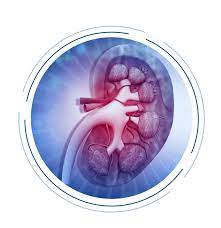
Nephrology
Nephrology is the medical specialty that focuses on the diagnosis and treatment of diseases and disorders of the kidneys. Nephrologists are physicians who specialize in this field and are trained to manage a wide range of kidney-related conditions, from acute kidney injury to chronic kidney disease (CKD), end-stage renal disease (ESRD), and kidney transplantation.
The kidneys play a crucial role in maintaining overall health by filtering waste products and excess fluids from the blood regulating electrolyte balance, and producing hormones that control blood pressure and red blood cell production. Nephrologists are experts in understanding the complex physiology of the kidneys and their interactions with other organ systems.
Nephrology encompasses various aspects of kidney health, including:
1. Acute kidney injury (AKI): Sudden and temporary loss of kidney function, often caused by conditions such as dehydration, infection or exposure to toxins Nephrologists diagnose and manage AKI, which may require supportive care, fluid resuscitation, and treatment of underlying causes.
2. Chronic kidney disease (CKD): Progressive loss of kidney function overtime, leading to complications such as hypertension, electrolyte imbalances, anemia. and bone disease. Nephrologists diagnoseand manage CKD, implementing strategiesto slow disease progression, manage complications, and improve quality of life.
3. End-stage renal disease (ESRD): Advanced stage of CKD where kidney function is severely impaired, necessitating renal replacement therapy such as dialysis or kidney transplantation. Nephrologists oversee the care of patients with ESRD, including dialysis prescription, transplantation evaluation, and long- term management.
4. Hypertension: Nephrologists are often involved in the evaluation and management of hypertension (high blood pressure), as kidney diseaseis both a cause and a consequence of hypertension.Controlling blood pressure is essential for preserving kidney function and preventing cardiovascular complications.
5. Electrolyte and acid-base disorders: Nephrologists diagnose and treat Imbalances in electrolytes (such as sodium, potassium, calcium, and phosphorus) and acid-basedisturbances, which can have significant effects on kidney function and overall health.
6. Kidney transplantation: Nephrologists collaborate with transplant surgeons and other specialists to evaluate candidates for kidney transplantation manage immunosuppressive therapy, and provide long-term care to transplant recipients.
Nephrology is a rapidly evolving field with ongoing research leading to advances in understanding kidney diseases, developing new diagnostic tools and treatment modalities, and improving outcomes for patients with kidney disorders. Nephrologists work closely with other healthcare professionals, including primary care physicians, urologists, endocrinologists, and nutritionists, to provide comprehensive care to patients with kidney-related conditions. Early detection, timely intervention, and multidisciplinary ollaboration are essential for optimizing kidney health and preventing complications associated with kidney disease.